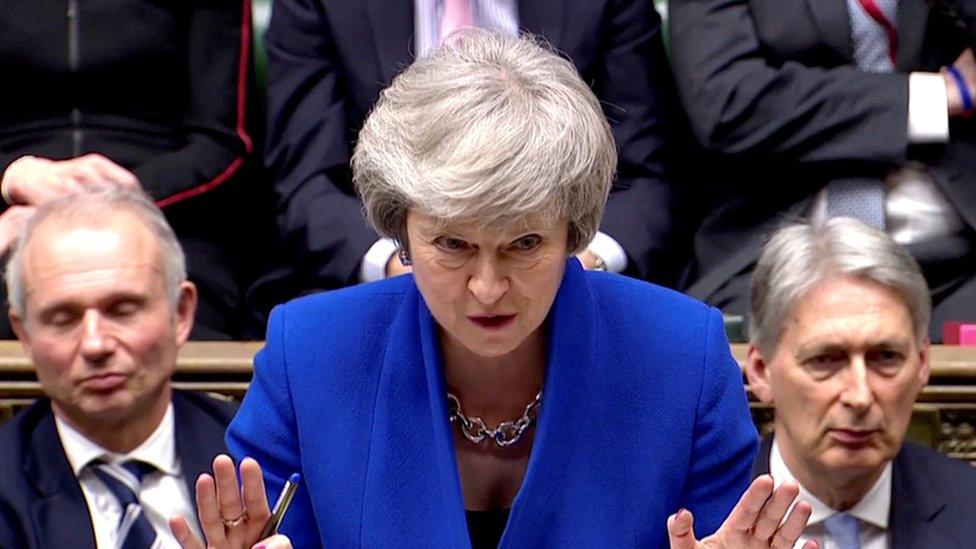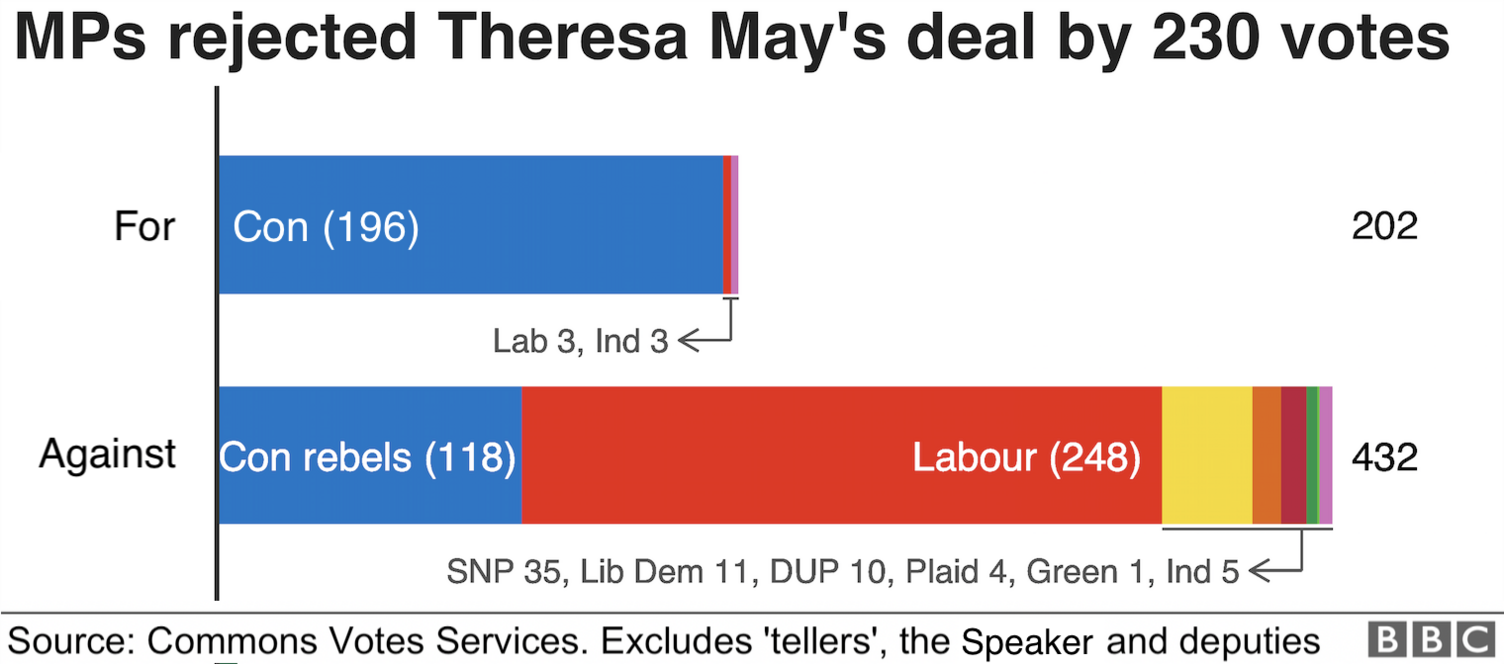Brexit and no-confidence vote: When will May budge?
- Published

"She is as inflexible as a dodo," one member of the government says of Theresa May - but that's not the only reason why she has been slow to compromise.
We all know that if you stretch an elastic band at both ends, eventually it snaps. And throughout her leadership, the PM has had Parliament as a whole pulling at one end, and the Eurosceptics in her party at the other.
It may be that in the next few days, the length of elastic finally can't cope with the tension anymore.
One formerly extremely loyal Tory MP said this morning: "Just at the moment when we need the maximum flexibility, we have the leader worst suited to it."
Didn't the PM promise a cross-party approach last night? Well, the suggestion of those talks is not quite what you might expect.
There's been no attempt from the government to reach out to the Labour official frontbench. And insiders have made it pretty clear that the idea would not include Jeremy Corbyn.
So, the government's plan - at least for the next few hours - is to keep going with its plan more or less unchanged and peel off a few opposition MPs here and there.
But by the end of the evening, there is a sense that there will have to be some more meaningful moves.
It's a reminder of how unusual this era is that, across Westminster, the feeling about this serious legal effort to remove her from office can be described as blasé.
But after that, one Cabinet minister joked the prime minister will budge at "five past seven" (the vote took place at 19:00 GMT).
A realistic route
And it's true that a shift to promising some kind of closer relationship with the EU, whether an actual customs union or something by a similar name, seems to be becoming more likely.
That's not because everyone in the government, let alone in No 10 or in the Cabinet, thinks it's the right thing to do - Liam Fox, whose job it is to pursue an independent trade policy, is not the only one with significant doubts.
But you can see a realistic route of getting that kind of arrangement through the House of Commons.
One former minister involved in trying to persuade the PM to soften up said: "We have three days to push and push her to move, or there won't be anything that can get through."
Even on the record now, ministers like David Gauke are acknowledging a customs union could be the solution, external.
Whether that move comes tonight or tomorrow, or, if not, then maybe after a second attempt to get the existing plan with a few tweaks through Parliament fails, it is one of the potential routes that many in government are considering as a way out of the quagmire.

What they know, however, is that if they take that path, it is at considerable risk to their own party.
That's not just because the prime minister herself has said on many, many occasions she would not consider a customs union - there are plenty of ministers who believe that walking away with no deal is a preferable course of action and would fight it hard.
That's not just because it would be a breach of the Tories' own manifesto.
But also because there is a hardcore of Tory Brexiteers who say they would rather quit their party and walk away than support such a plan.
That's no secret. They have said it many times publicly, and they say they are willing to see a historic split in the governing party.
And, more dangerously for the prime minister, even if the plan was passed by the Commons, Labour might continue to push votes of no-confidence in the government beyond that, and those furious Eurosceptics might vote with the opposition to sink their own party.
Brexit trumps power
That might seem outlandish, and it may well never come to pass. But this has been the most brutal reality for Theresa May all along.
There are some MPs in her own party - not very many - but a group for whom getting what they see as a "proper" Brexit is more important than staying in power.
She may tack to a closer relationship with the EU in order to get a deal through Parliament in the next few weeks. But just as it was obvious at the start of this process, so it's clear now, Brexiteers in Parliament could be Theresa May's salvation or her ultimate undoing.
PS: Nerds will welcome a reminder that a paragraph of one of Mrs May's long speeches about the EU might give her some cover for a pivot of position, if it's the way she has to go.
She ruled out staying in the current Customs Union, but then came something you might describe as "nebulous"...
"I do want us to have a customs agreement with the EU," she said. "Whether that means we must reach a completely new customs agreement, become an associate member of the Customs Union in some way, or remain a signatory to some elements of it, I hold no preconceived position.
"I have an open mind on how we do it. It is not the means that matter, but the ends."
Let's see if in the next few days that paragraph suddenly feels rather relevant.